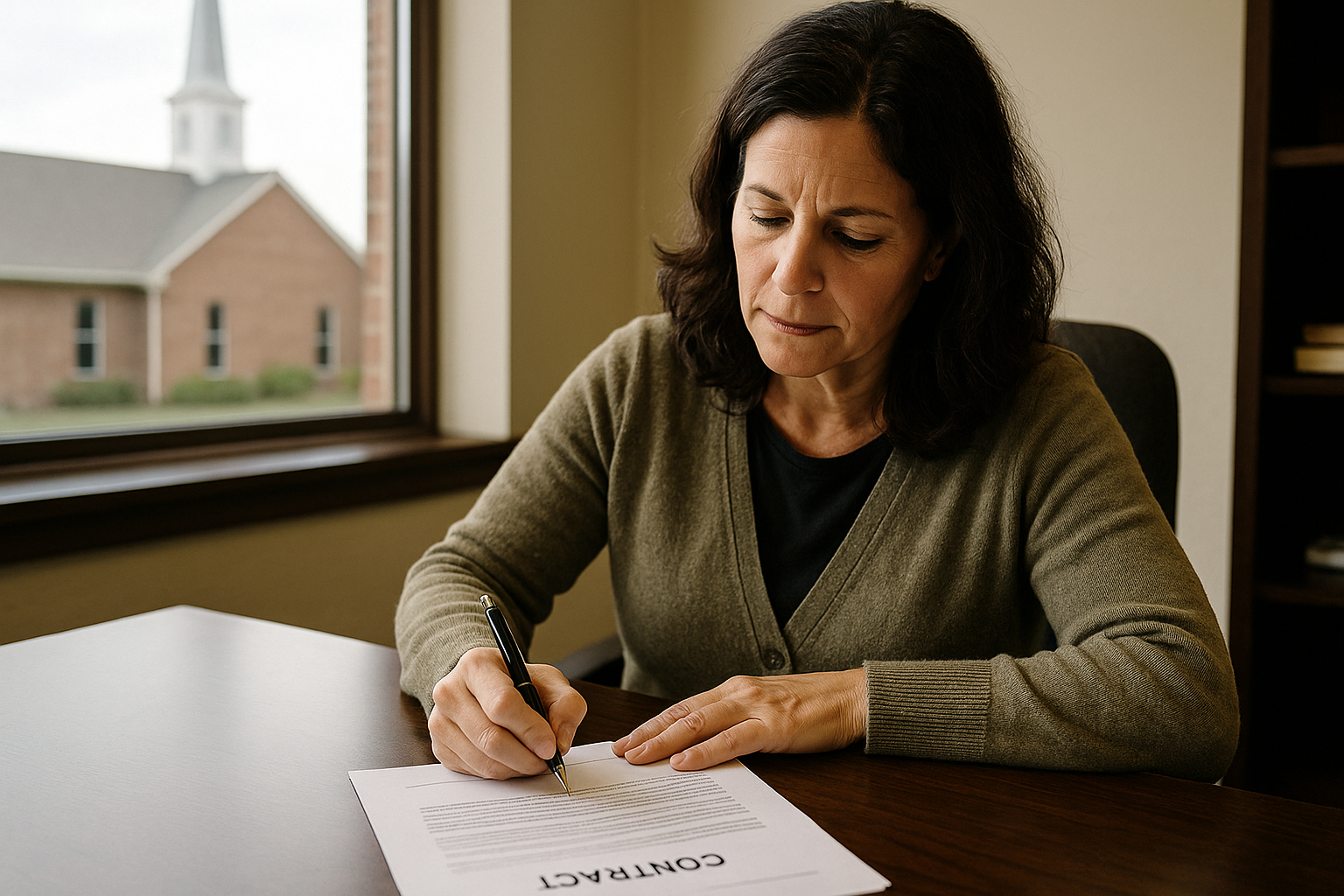If your church has ever considered hiring a private security company, you’re not alone. More and more ministries are taking this step to help protect their congregation and facilities. But before you sign a contract or accept a certificate of insurance, it’s important to understand what you’re agreeing to. Many security agreements are written to protect the vendor—not the church.
Here are a few things to watch for when reviewing a security contract or certificate of insurance (COI):
Make Sure the Protection Flows the Right Way
In most cases, the security company is working on your behalf. That means they should list your ministry as an Additional Insured on their insurance policies—not the other way around.
If a contract says the church must add the security company as an additional insured, that’s a red flag. It shifts the liability back onto your insurance policy and can put your ministry at risk for claims caused by their negligence.
Ask to see a COI that lists your church as an additional insured on the vendor’s general liability, auto, and workers’ comp coverage, with wording that says it’s primary and non-contributory (meaning their coverage responds first if there’s a claim).
Watch the Indemnification Language
This part of the contract spells out who pays if something goes wrong. Many agreements require the church to defend or pay for losses even if the vendor was at fault. That’s not fair or reasonable.
The indemnity should be mutual or limited to each party’s own negligence. In other words: you cover your mistakes, they cover theirs. Don’t agree to indemnify the company for criminal acts, third-party behavior, or incidents that result from their actions.
Confirm the Insurance Limits Are Enough
Some smaller security firms carry only the minimum coverage required by law—and that may not come close to covering a serious injury or property claim.
As a general guideline, we recommend your security vendor carry:
- General Liability: $1,000,000 per occurrence / $2,000,000 aggregate
- Auto Liability: $1,000,000 combined single limit
- Workers’ Compensation: Statutory coverage plus $1,000,000 employer’s liability
- Umbrella or Excess Liability: $2,000,000 or higher
You deserve to know the vendor has the financial backing to stand behind their work.
Be Wary of “No Responsibility” Clauses
Many security contracts include statements like, “We are not responsible for theft, loss, or injury of any kind.” While it’s reasonable that they can’t guarantee crime won’t happen, they should still be accountable for negligence or failure to perform their duties responsibly.
You hire them to provide a layer of safety. They should carry insurance and accept responsibility if they don’t fulfill that duty.
Look for Other Common Pitfalls
- Rate Increases: Make sure any fee changes require your written consent.
- Termination Terms: Ensure you can end the agreement with reasonable notice.
- Subcontracting: Confirm they can’t send other security personnel or companies without your approval.
Get Proof—and Review It Each Year
Before services begin, ask for:
- A signed service agreement (after review)
- A current Certificate of Insurance showing your church as additional insured
- Proof of their active state security license
Then set a calendar reminder to review these items annually.
Partnering with Trusted Security Providers
We understand that ministries want to work with companies that not only know security but also understand the unique environment of a church setting. That’s why we’re proud to recognize Shepherd Security as a preferred partner of ChurchWest for church security services and training.
Shepherd Security specializes in working with ministries and faith-based organizations. Their team provides both professional on-site security services and practical training for church staff and volunteers. They share our mission to help churches protect their people while maintaining a welcoming, ministry-minded atmosphere.
If you’re looking for a security partner who values ministry as much as safety, we highly recommend connecting with Shepherd Security through ChurchWest.
Final Thoughts
When it comes to protecting your ministry, the goal isn’t just to have security on site—it’s to make sure your church is protected legally and financially, too. A few minutes of contract review now can save months of frustration and expense later.
If you ever need help reviewing a security agreement or COI, our ChurchWest team is here to walk through it with you. We’ll make sure the terms align with your mission and keep the protection where it belongs—with your church.






